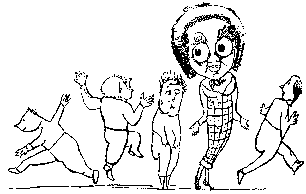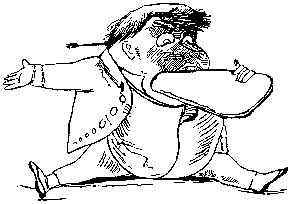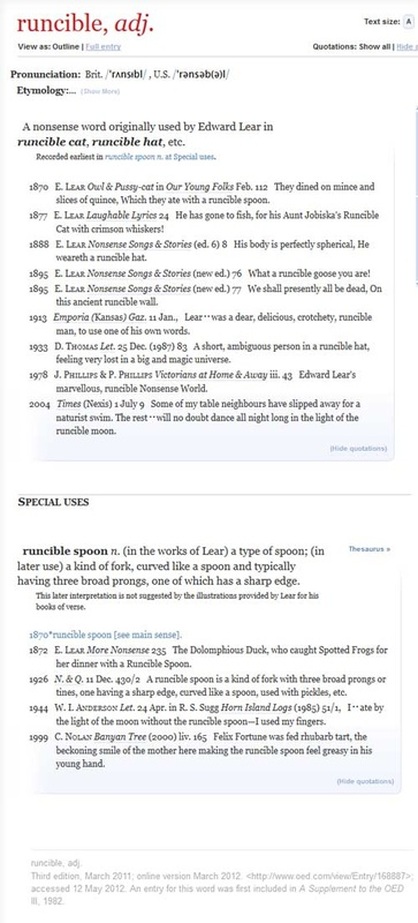 Leonard Pinth-Garnell (aka Dan Aykroyd) Thanks to my Highsmith Librarian's Desk Calendar, I learned that today, August 18th, is National Bad Poetry Day. Of course I had to do a little research on this holiday of which I knew absolutely nothing (except that it sounds delightfully fun!) Turns out that National Bad Poetry Day was not created by Congress, nor the Library of Congress, nor Hallmark (that would be National Sappy Poetry Day), nor Leonard Pinth-Garnell, but by entrepreneurs Thomas and Ruth Roy, who apparently copyrighted the idea through their "Wellcat" website. (They also apparently sell herbs, but I did not venture a mouse click to find out which kind.) The Roys suggest celebrating the holiday by inviting some friends over to write some wretched poems and then sending them to your old high school English teachers. I'll admit that sounds like a hoot to me (but then I'm a writer.) If you don't have time to put together a poetry party, you can mark the day by checking out the bad poetry compiled at (where else?) Very Bad Poetry ("the last refuge of the world's worst poetry.") There you can find such gems as "Mexican Food" (which, to pinch a Pinth-Garnell phrase, really bites the big one (pun fully intended). Or take a gander at the execrable haiku "Butterfly" (as Pinth-Garnell would say "exquisitely awful") or the monumentally ill-advised "Fattypants." You might also despise the horrifically sadistic "Bachelor of IT" and the stunningly bad favorite of physicists everywhere, "Schrodinger's sex panther." Or take a moment to jot down some unrelentingly bad verse yourself and post it. If you do, send me the link so we can all enjoy. Or feel free to write some bad (as opposed to badass) poetry in the comment box. As Leonard Pinth-Garnell would put it, "There now, that wasn't so good, was it?"
3 Comments
May 12 is the 200th anniversary of British author Edward Lear's birth (1812 - 1888). Lear, whose talents including writing poetry ("The Owl and the Pussycat") and drawing illustrations for the Royal Zoological Society (he's been compared to John James Audubon), really made a name for himself writing and popularizing the limerick, those witty little poems written in a five line, usually anapestic, meter with an AABBA rhyme scheme.  The young Lear (courtesy poets.org) What's unique about limericks is that they are the only English stanza form used exclusively for light verse. Limericks are always comic, often nonsensical, and frequently naughty. Theories abound as to their origin, ranging from the belief that limericks were an old French verse form brought to the Irish town of Limerick in the early 1700's by veterans returning from The Nine Years' War in France to the notion that they grew out of the nursery rhymes published as Mother Goose Melodies for Children in 1709.  The old Lear (courtesy poets.org) No one is sure about the etymology of the name "limerick" and Lear never used that term to describe his verse, but he was truly the first master of the form. His Book of Nonsense was published in 1846. At that time, books for children were traditionally published anonymously, so his name was not attached to it. It finally appeared in the third edition printed in 1861. It included a variety of gems:  Original illustration (courtesy nonsenselit.org) "There was a Young Lady whose eyes, Were unique as to colour and size; When she opened them wide, People all turned aside, And started away in surprise."  Original illustration (courtesy nonsenselit.org) "There was an Old Man of Calcutta, Who perpetually ate bread and butter, Till a great bit of muffin, On which he was stuffing, Choked that horrid Old Man of Calcutta." In honor of Lear, the Oxford English Dictionary "Word of the Day" is... "runcible."  Portmanteau: spoon + fork = spork And the nonsense continues today! What Edward Lear called a "runcible spoon," we now call a "spork." You can find out more information about Edward Lear at A Blog of Bosh and Poets.org. There are plenty of websites out there with limericks galore, some of which are family friendly and others not-so-much. This little ditty below is entirely G-rated as it explains how to write a limerick. And I will leave you with this gem:
"A bather whose clothing was strewed By winds that left her quite nude Saw a man come along And unless we are wrong You expected this line to be lewd." The fog comes
on little cat feet. It sits looking over ... (from "Fog") Hog Butcher for the World, Stormy, husky, brawling, City of the Big Shoulders... (from "Chicago") Pile the bodies high... Shovel them under and let me work-- I am the grass; I cover all... (from "Grass") If I should pass the tomb of Jonah I would stop there and sit for awhile; Because I was swallowed one time deep in the dark And came out alive after all. (from "Losers") |
AuthorTo find out more about me, click on the Not Your Average Jo tab. Archives
February 2024
Categories
All
|


 RSS Feed
RSS Feed